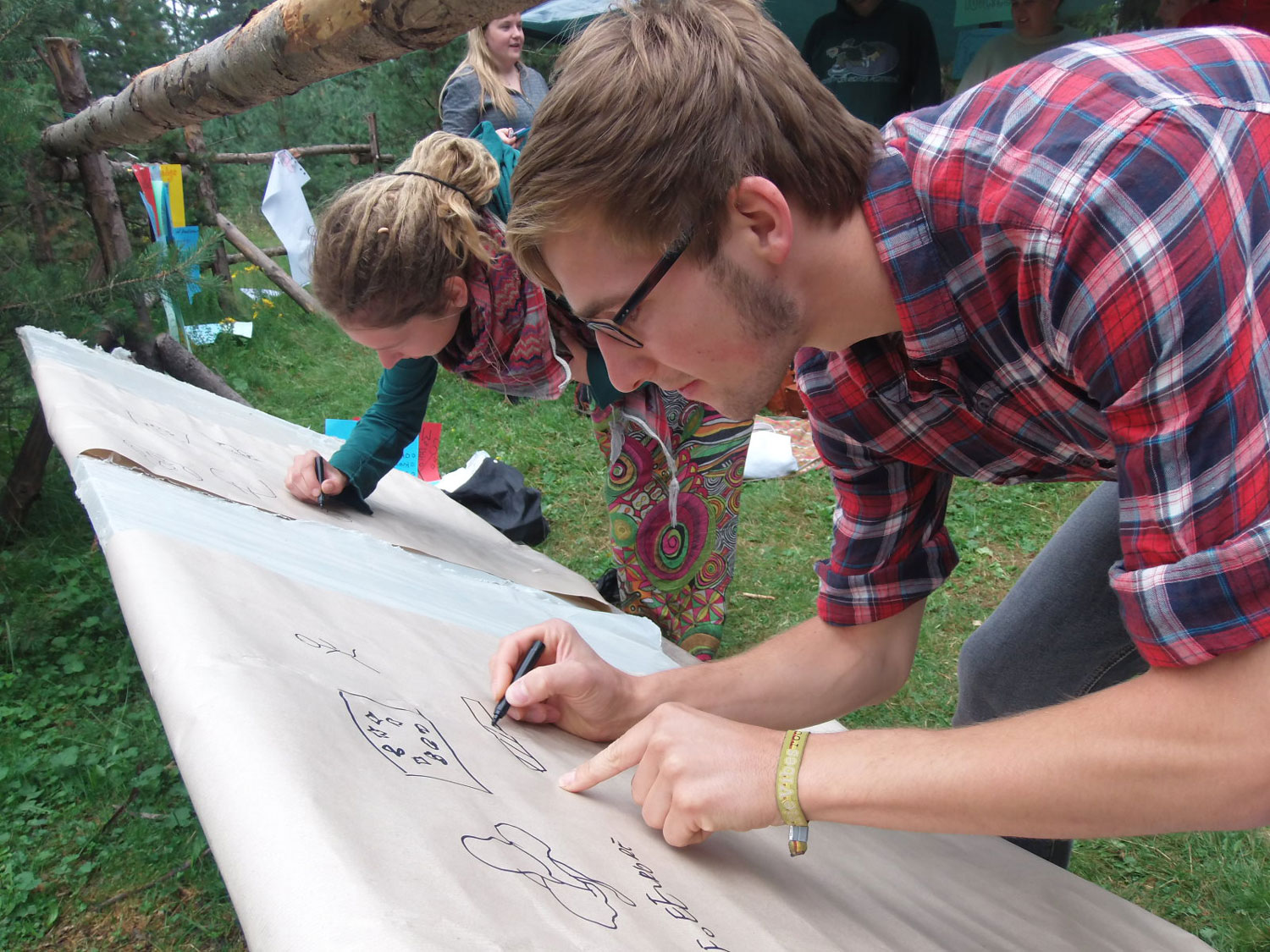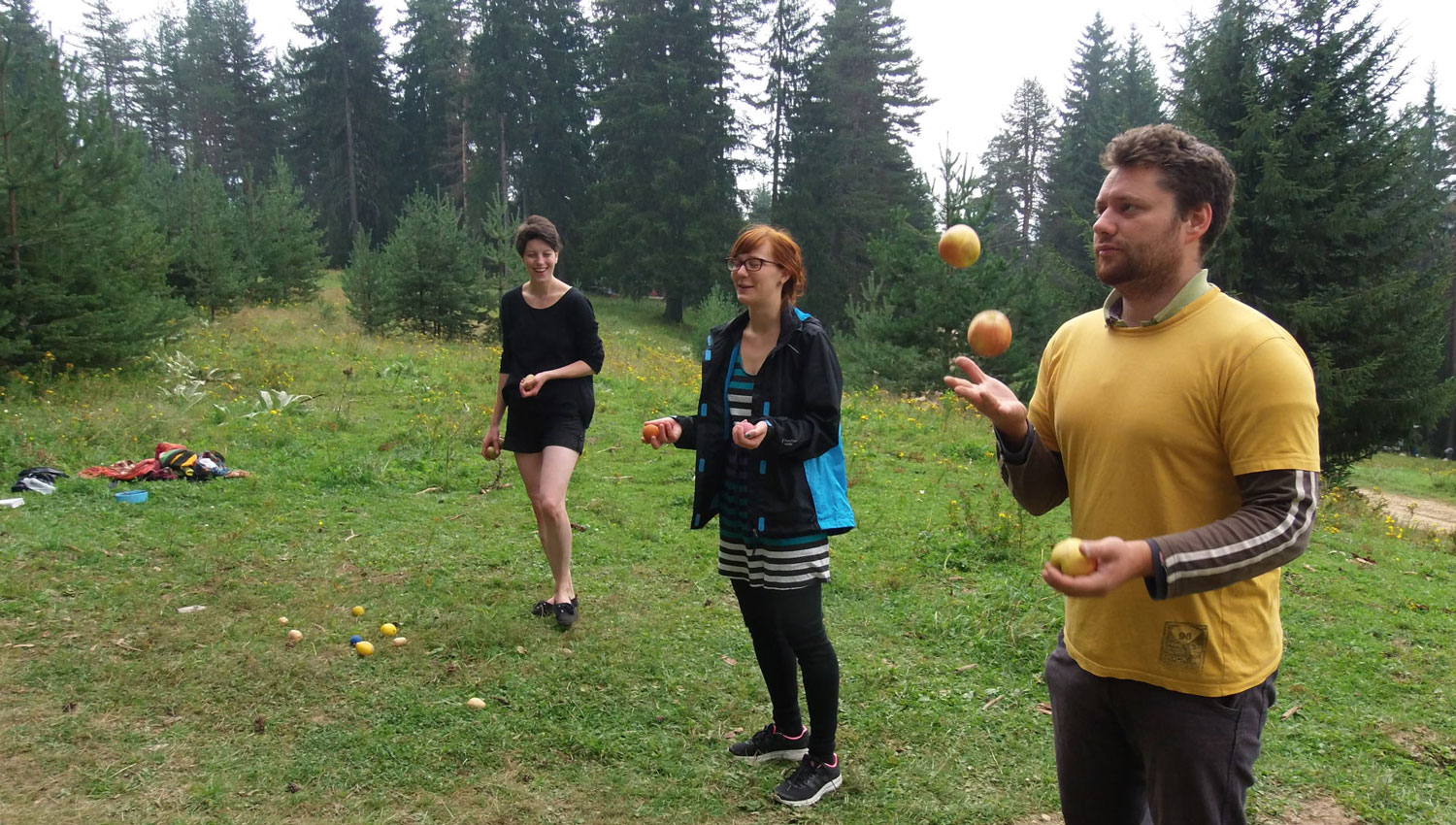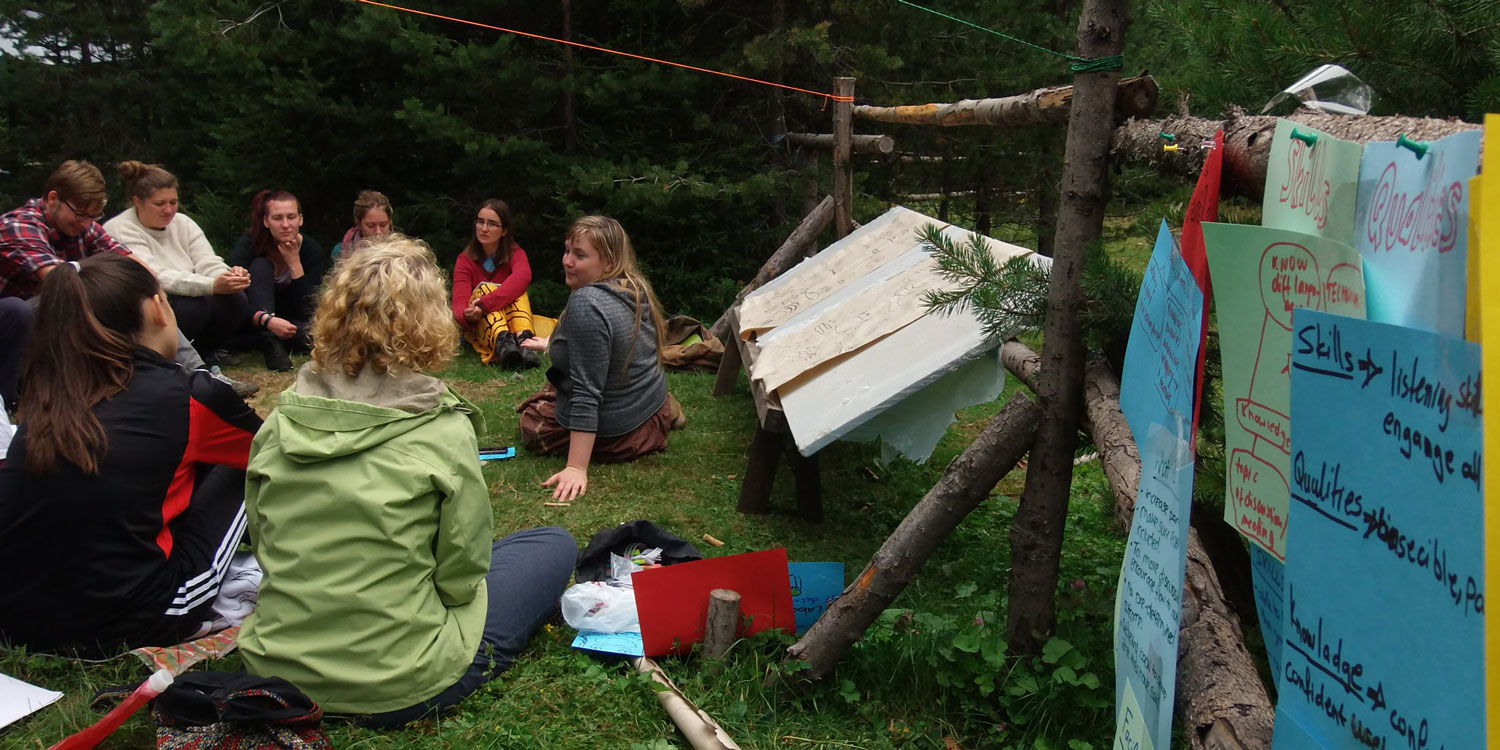Elena from Young Friends of the Earth Macedonia
Building our Network
Building our Network was one of the best sessions and the most important one at this year’s YFoEE Summer Camp.
The YFoEE network has four parts: member groups at the local and national levels, working groups, the steering group, and the Friends of the Earth Europe office in Brussels. This Summer Camp is also organized by working groups (who are made up of volunteers), with the main topic being food & agriculture. The YFoEE network has an annual events program that includes activities such as Summer Camp, the network gathering, practical trainings etc.
In this session we discussed ways to improve and extend our network. We talked about the issues that each country is working on, and about opportunities for groups who are working on similar issues to work together in the future. The most common issues that most of the countries are concerned with are: food and agriculture, climate justice, unconventional gas (fracking), and others issues like legal protection of the environment.
It was mentioned how the organisations can build our own network. In this regard, YFoEE can contribute via financing, trainings, supporting member groups, sharing ideas and skills, giving solutions for global problems and providing expert knowledge.
Living in this global world, where we are concerned with many challenges and environmental issues, building our network will help us to make our planet a better place for living.

Iwan from Bundjugend/Young Friends of the Earth Germany
Seed exchange report
In a seed exchange, you basically try to exchange your seeds for more exotic ones from other merchants, just like in a market. You also learn while you trade useful information about the goods from the other traders. The goal of it is to make you more aware about the monopolisation of our seed pool created by agribusiness corporations such as Monsanto.
Anyway, our seed exchange at this year’s Summer Camp started at around 19:30, and was hosted by Jolanta from Lithuania. She started with a small game, where participants had to guess the specific kind of seeds that she had brought from her own garden. Everyone was very surprised about the identities of the seeds she offered. Although they all looked very exotic, they were just our everyday vegetables – like dill, cucumber, and pumpkin.
After that, everyone else who had brought seeds along repeated the exercise. It wasn’t over yet, because now it was time for the real exchange. All the participants started to barter their seeds like in a traditional market, where everyone loudly praised their goods at a breakneck pace. It was so engaging that it cut well into dinner time – we learnt a lot!


